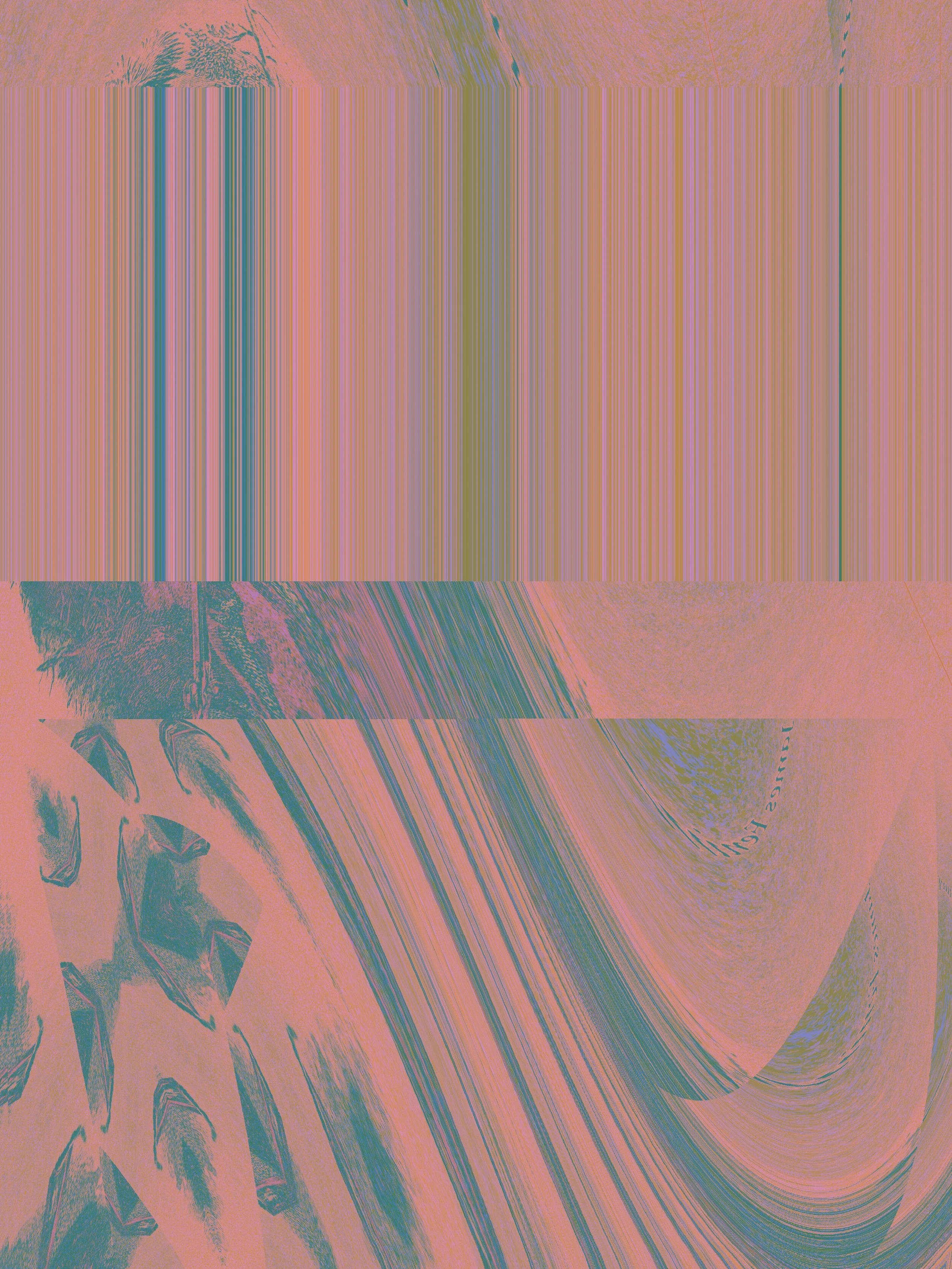Poetry
New VR art on Arrhythmicity, grab your goggles! /
I have some new digital art in the VR exhibition at Arrhythmicity. Make sure you have your VR goggles, it's immersive! It runs until 5.15.18 and is made by dalpfozs.
“My digtial collages are done exclusively on the iPhone 6 using apps such as Decim8, Pixel is Data, and Photoshop Mix to glitch, distort, and errorize found text and images.
The excerpts from the series I have attached explore a vocabulary new to me, child rearing. The fragmented, sometimes illegible words floating through these collages speak to the radical transformations to communication that characterize the birth partner experience”
My work appears with Zeppra, Bryan Meador, Sarawut Chutiwongpeti, Momma Tried, Udit Mahajan, and Endam Nihan. And don't forget to check out previous exhibitions!
“arrhythmicity - curatorial statements
eRR0R
an exploration of the fertility of errors, with works by:
15.03.2018 - 15.04.2018: Marcelina Wellmer, Kevin Brophy, osvaldo cibils, Simon Hutchinson, cleo miao, jah justice, Sian Fan, Noah Travis Phillips
15.04.2018 - 15.05.2018: Bryan Meador, Endam Nihan, James Belflower, Momma Tried, Sarawut Chutiwongpeti, Udit Mahajan, Zeppra
15.05.2018 - 15.06.2018: Bianca Hockensmith, Claude Heiland-Allen, David Lisbon, Jonathan Kiritharan, Nick Montfort
the exhibition developed starting from the following open call for very short audio (.mp3 - max. 30s) and images (.jpg - max. 500kb):
in a world that covers its flaws in the blinding light of universal truths and institutionally reinforced regimes of visibility, we are interested in the fertile shades opened up by errors. the antiseptic intellectual environment our societies try to achieve, while arguably “healthy” and “safe” for the established values, has the huge disadvantage of obscuring any fundamentally different modes of existence. we are looking for submissions that explore the fertility of errors and question our inherited worldview.”
Hybrid Poetry and Real Time Collaboration at the New School /
On 2/22/2018 I spoke with students from John Reed's seminar at The New School about Hybrid Poetry. We discussed the difficulties unique to creating hybrid work and the innovations that can result from collaborating with and through different mediums. At the end of our conversation all 10 of us participated in a real time collaboration through Google Docs. The goal was to write a short collection of hybrid work in 15 minutes. No other constraints were established, so if you were inclined to, you could simply delete for the entire time. No one did, but the discussion afterward revealed that the event pushed each one of us to write, collage, and negotiate different mediums in fresh ways. In the poem you'll notice multiple languages, humor, memes, confessional lines, questions, word acrobatics, texts, tonal juxtapositions, and advertising images, all mingled in a communal sense of play.
The experience was stupendous and the results were so irreverent and fun! I've published the pages from the collaboration below. Enjoy!
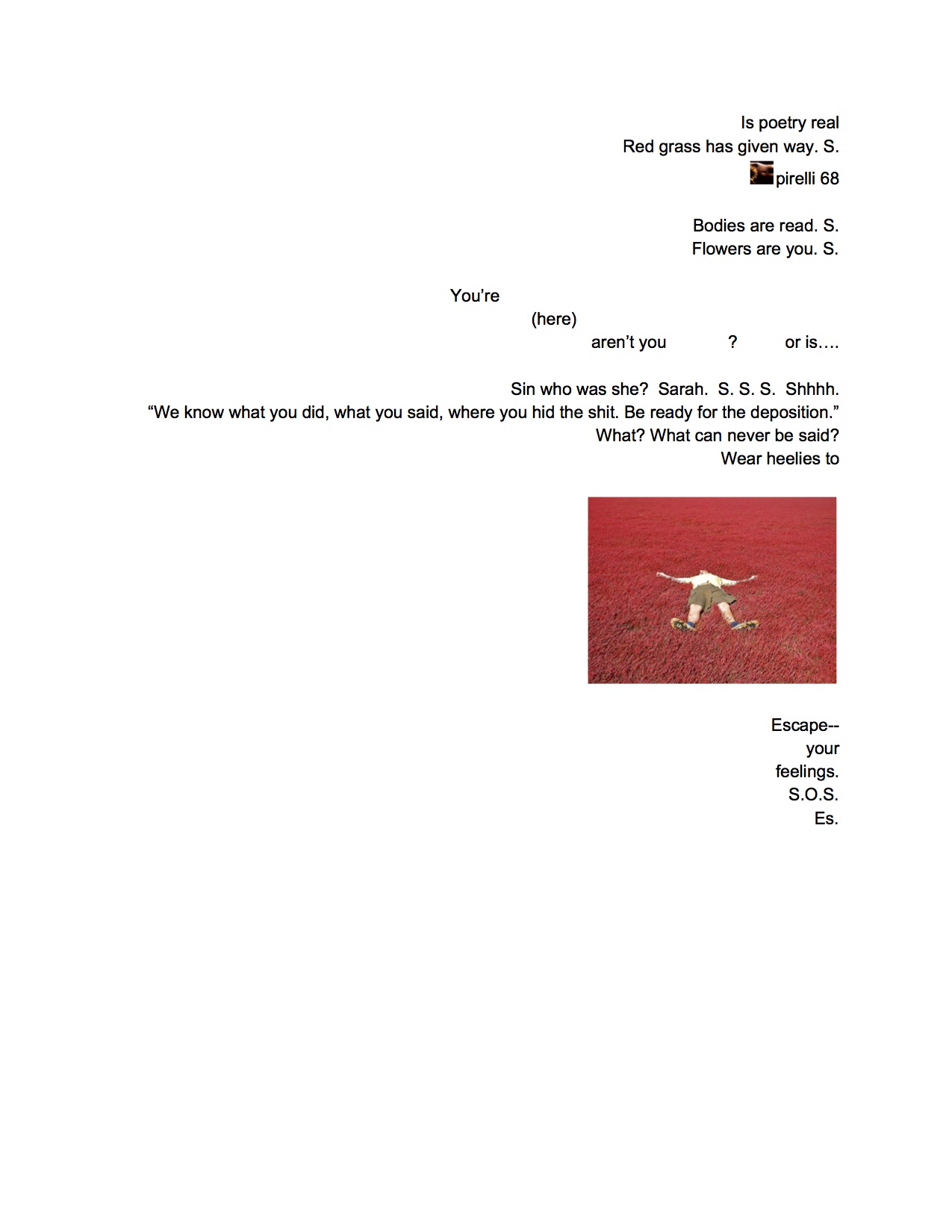
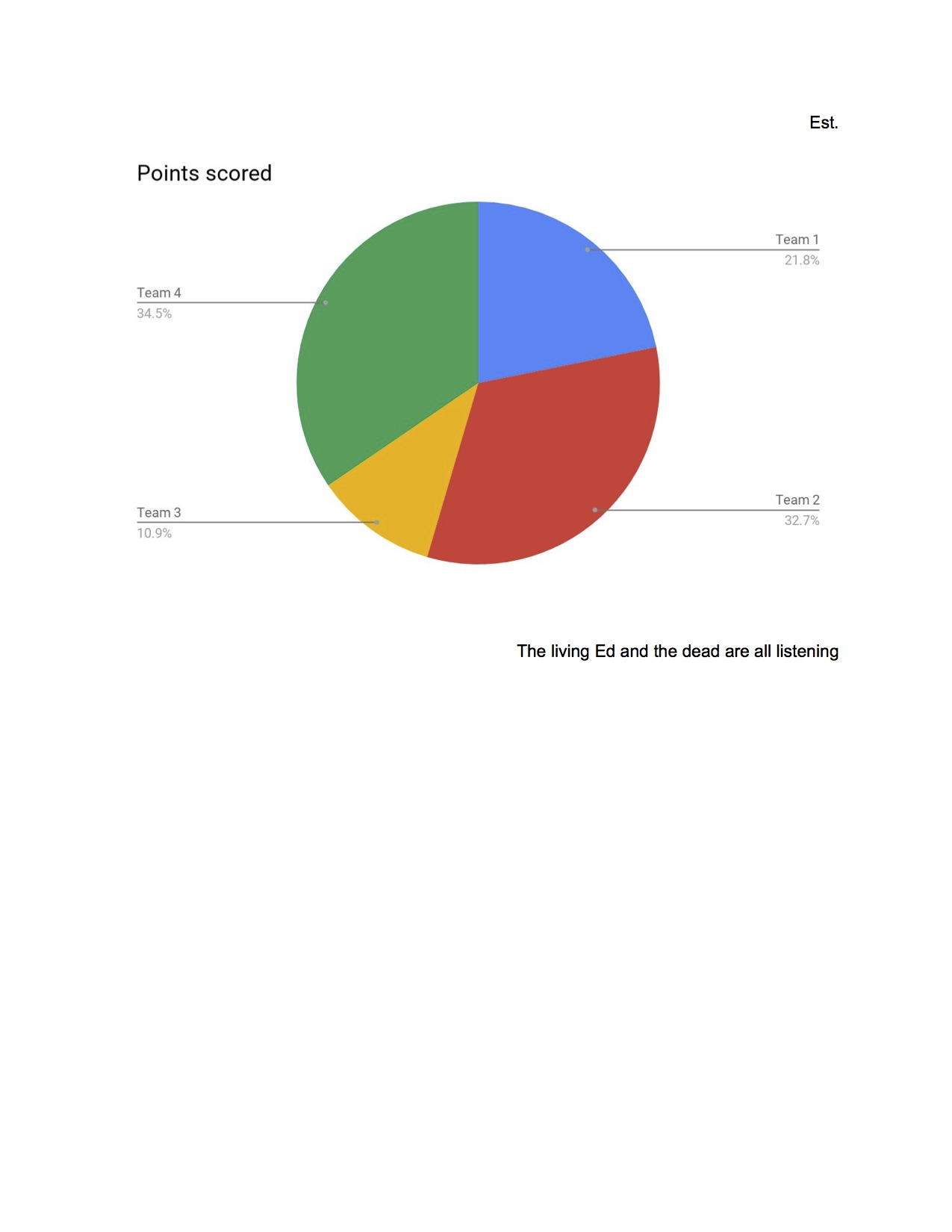
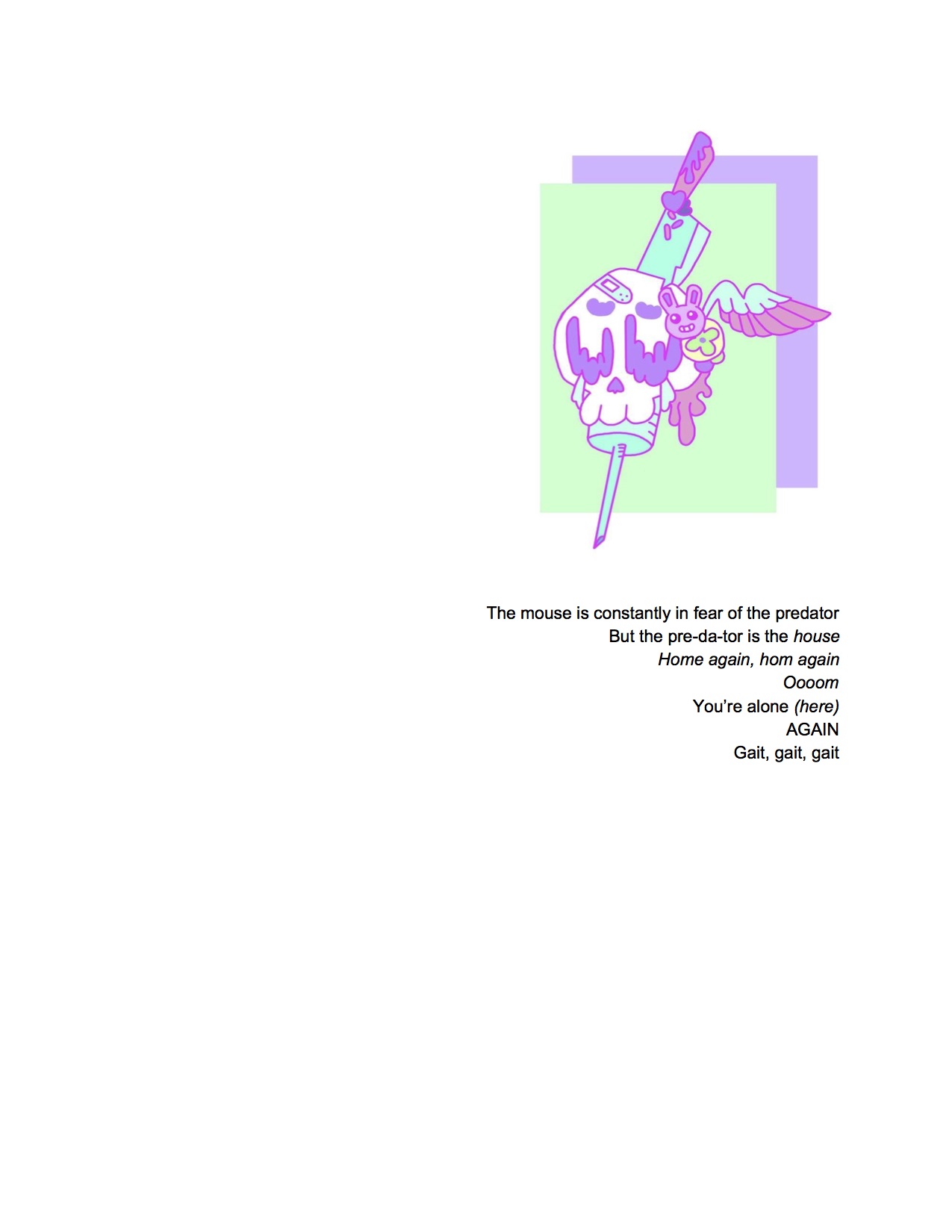
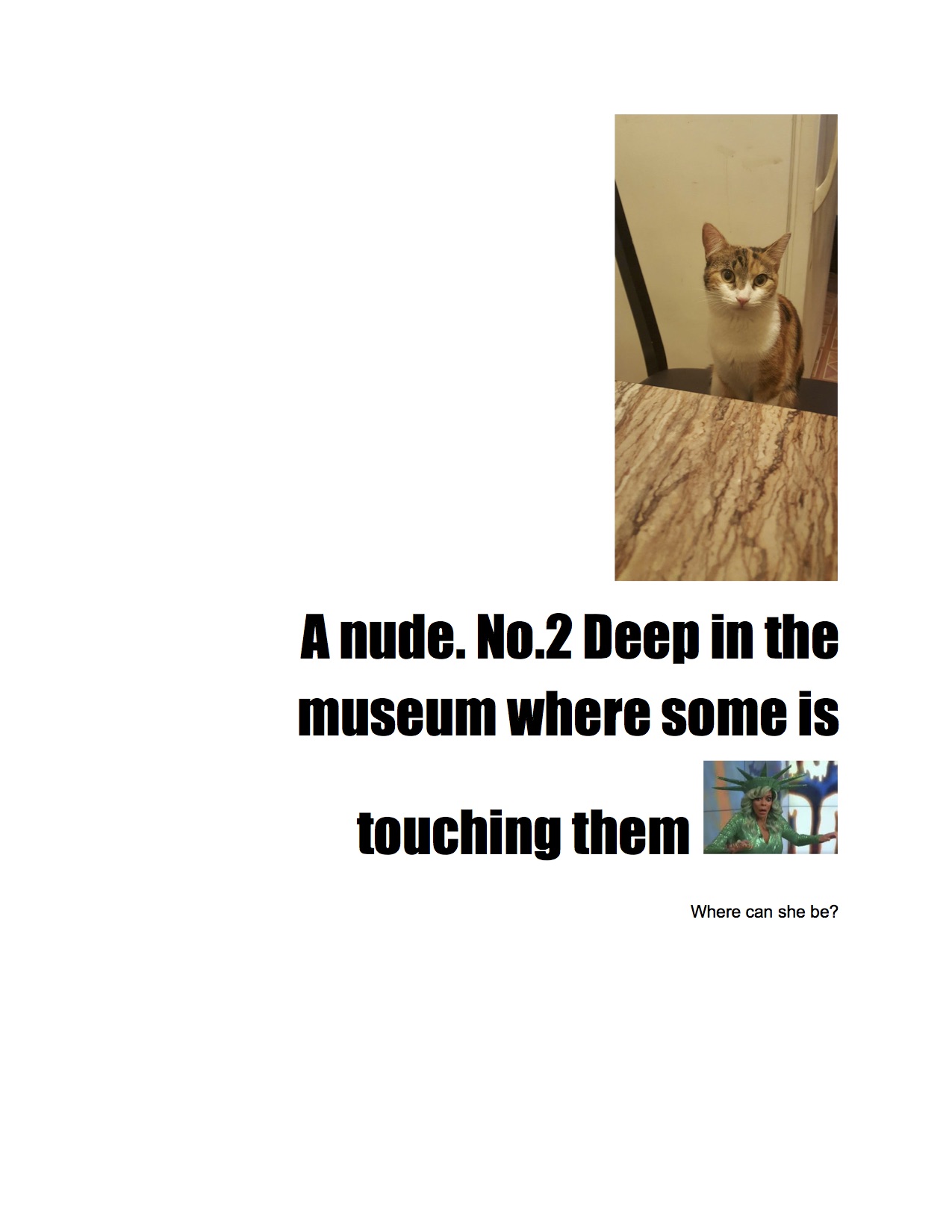
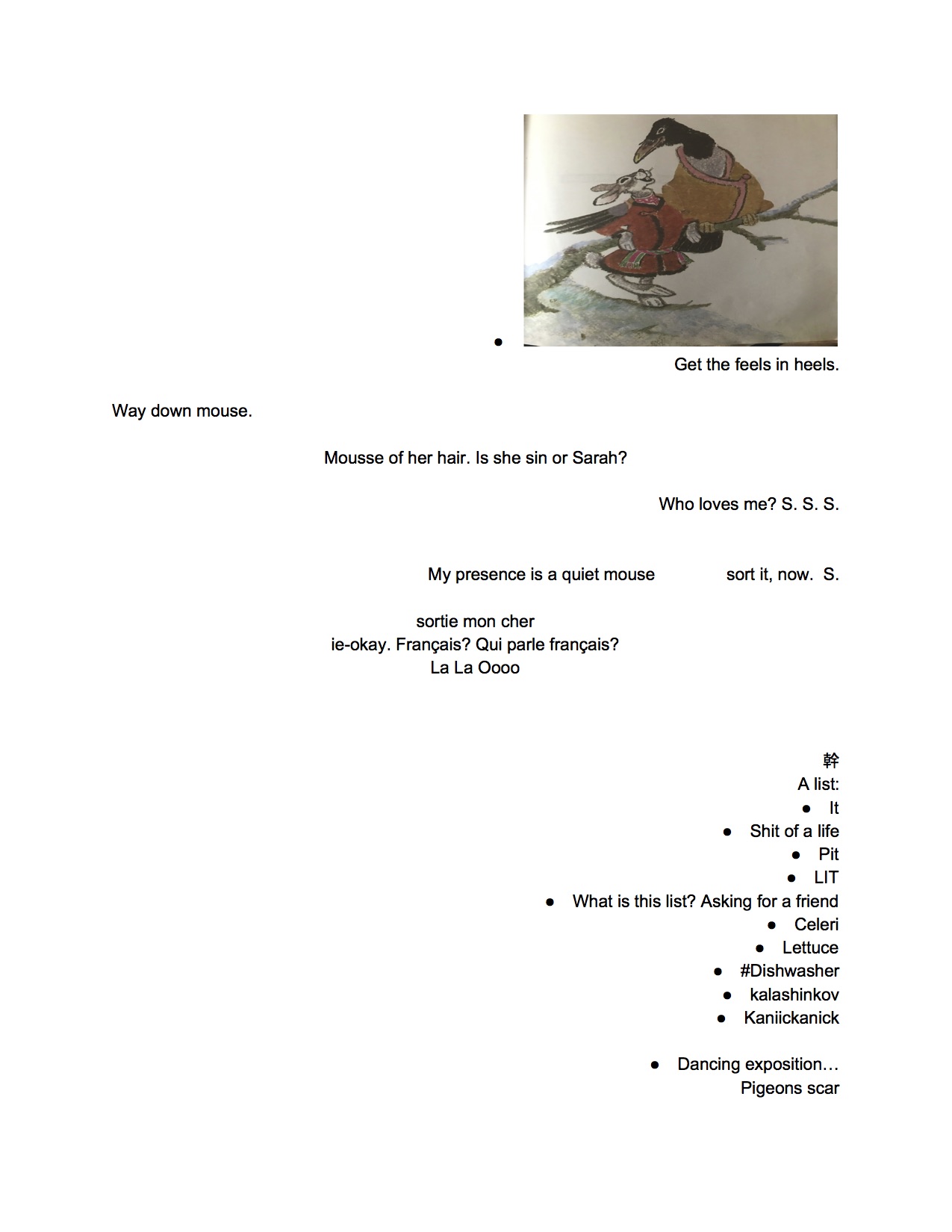
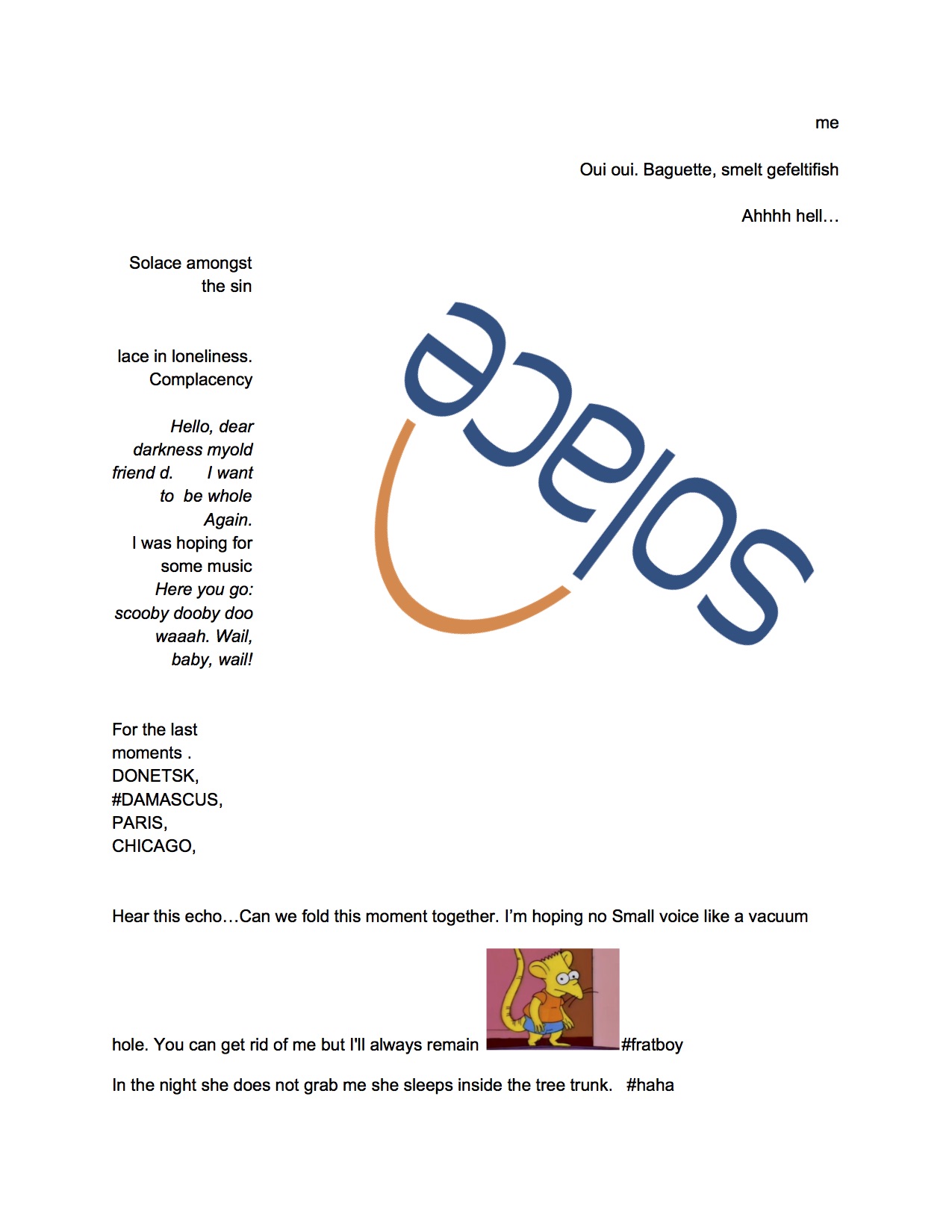
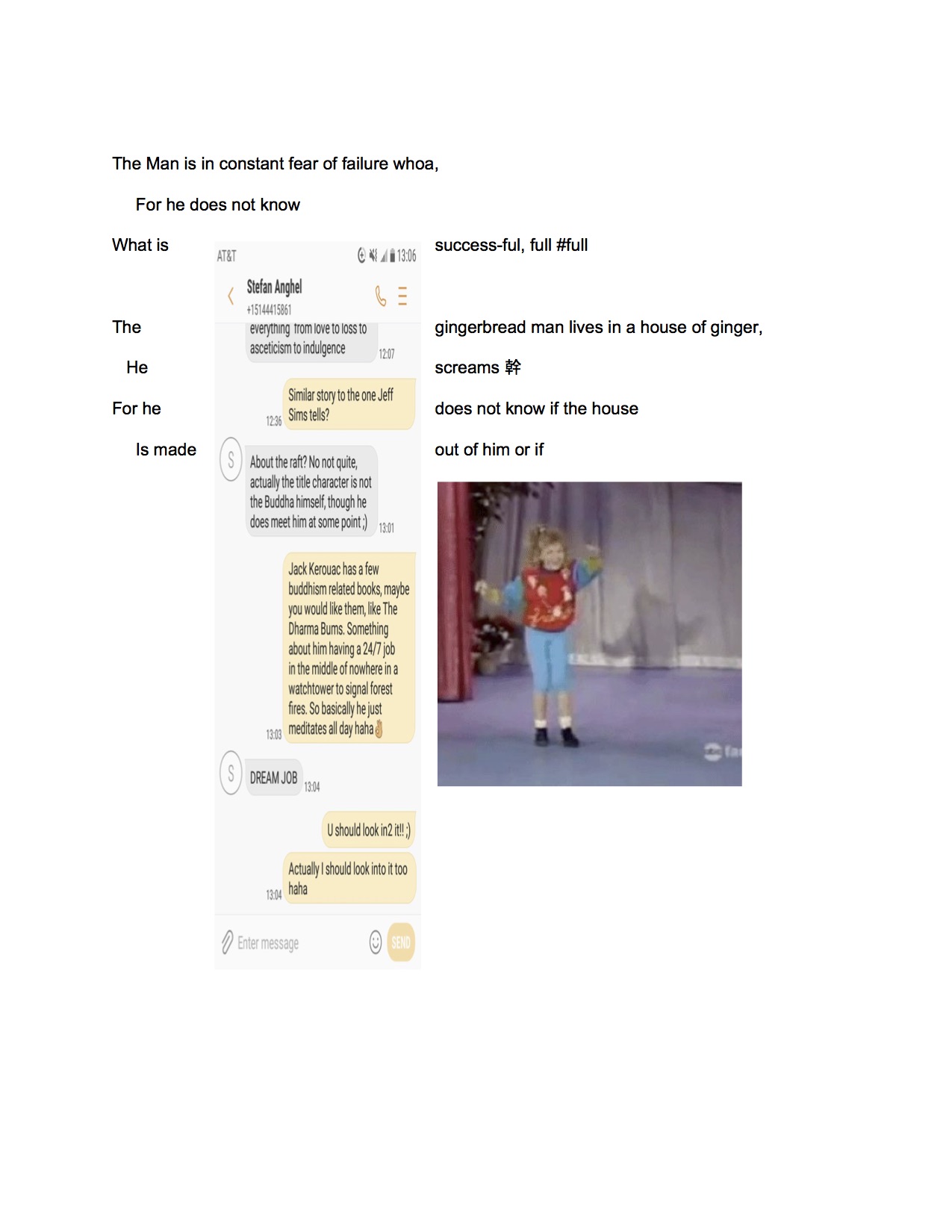
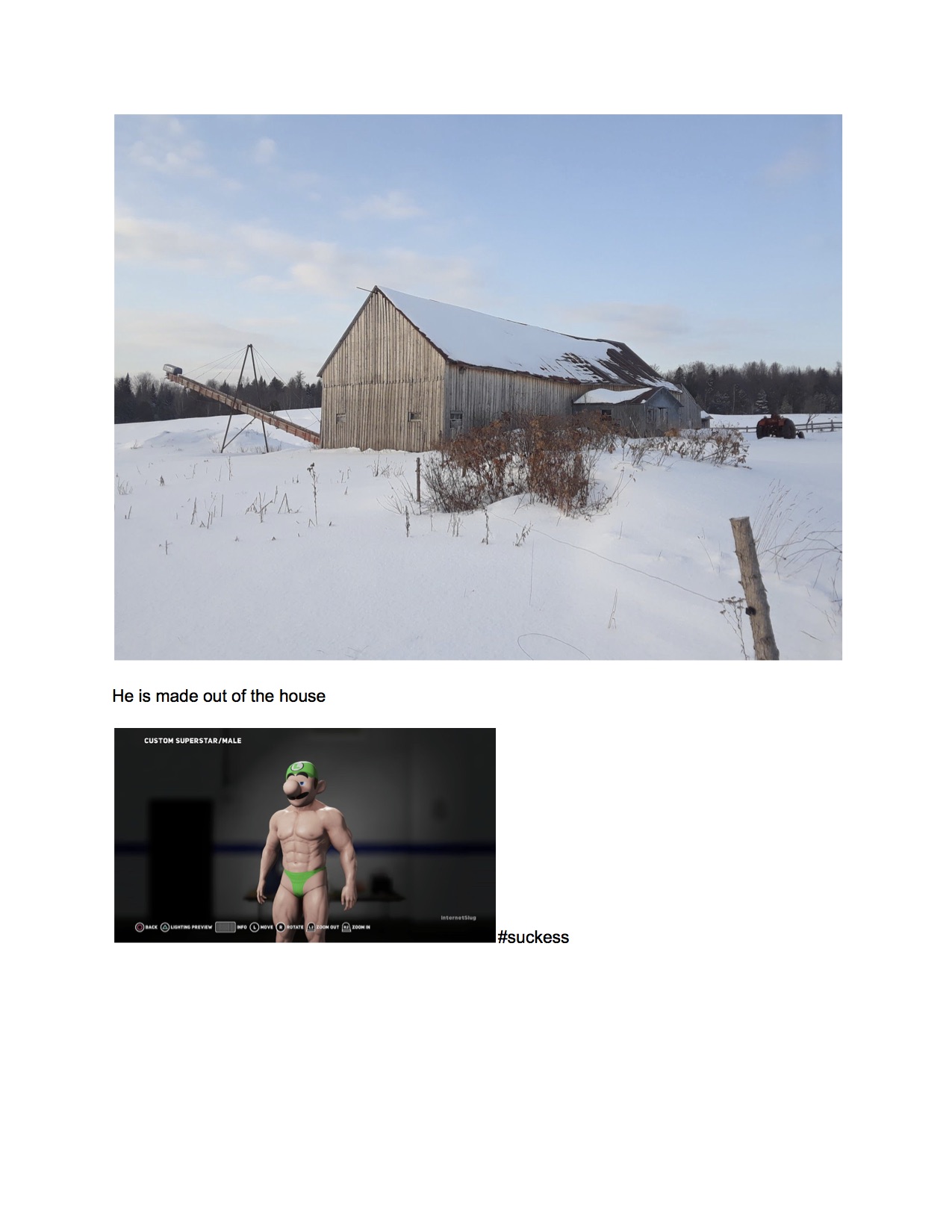
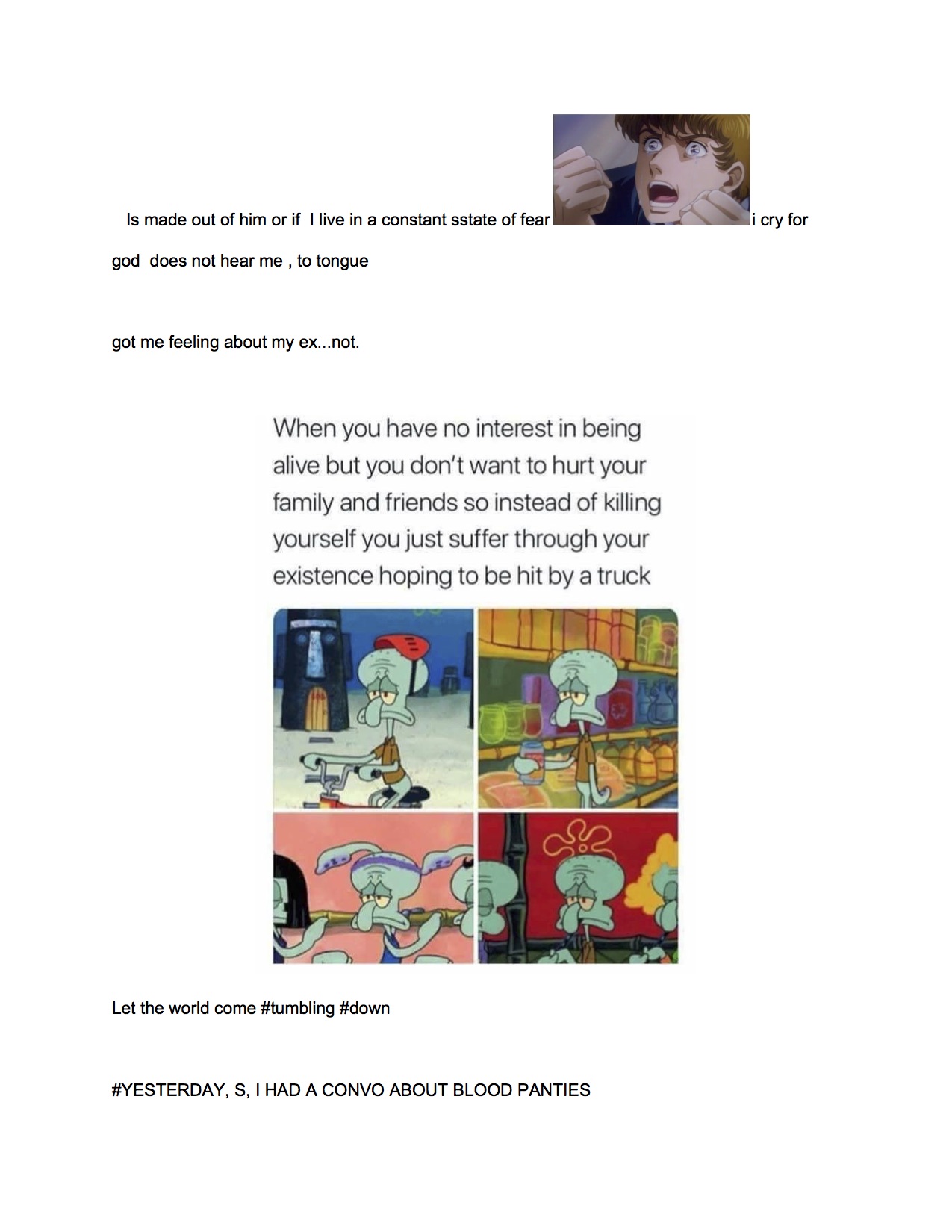
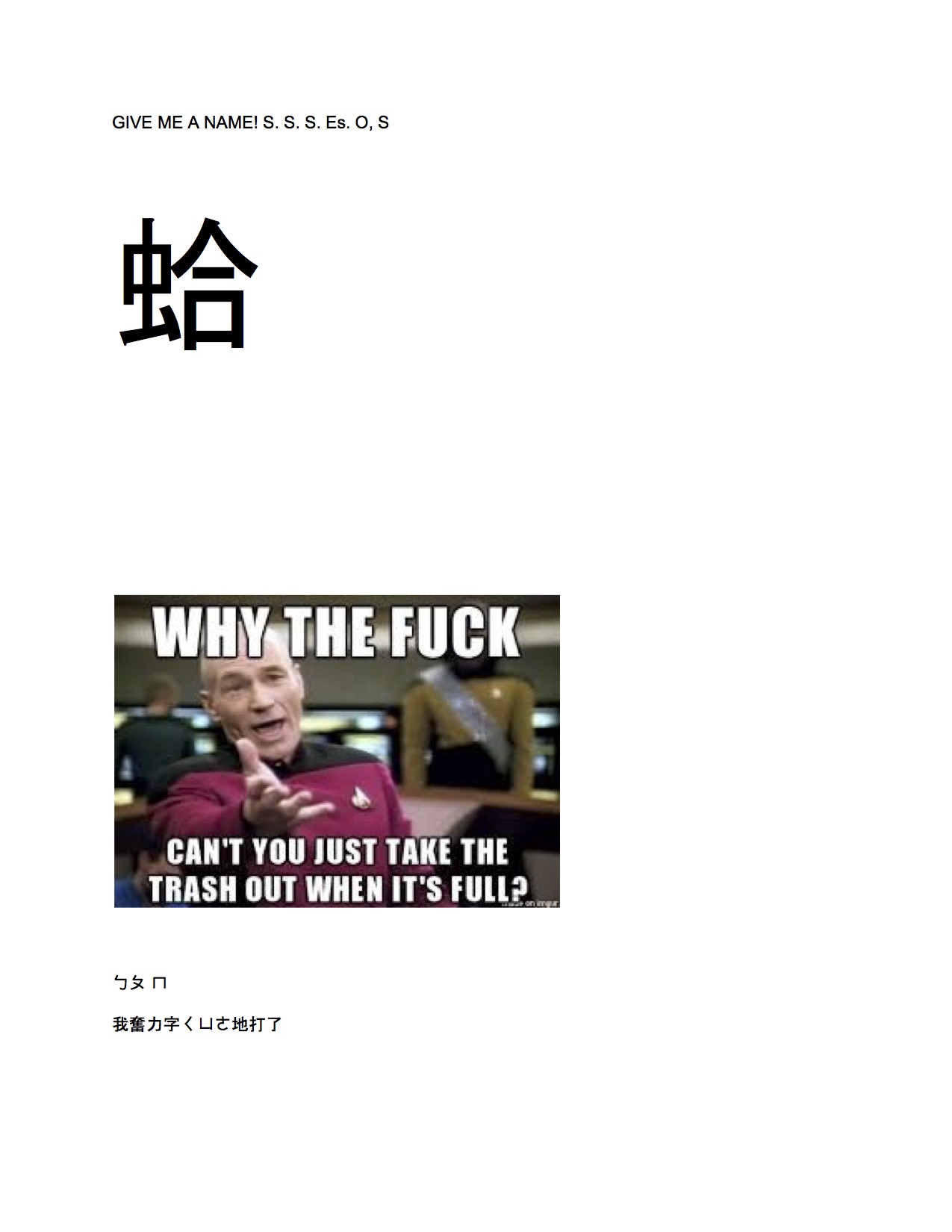
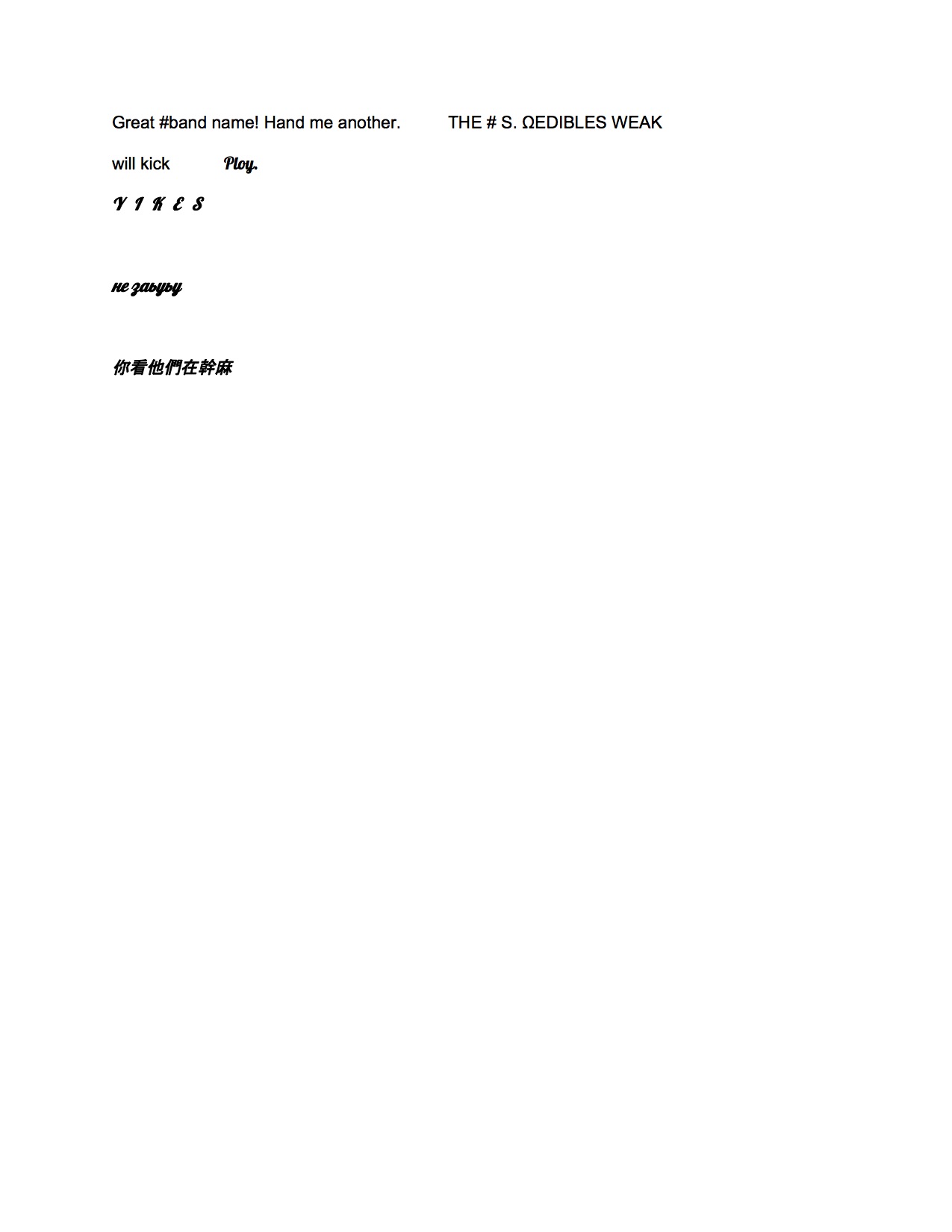
Canyons: Shout out in At Buffalo /
At Buffalo, the magazine for alumni and friends of SUNY Buffalo gives a shout out to Canyons. Matthew Klane is '03 Buffalo alumni.
Canyons
James Belflower and Matthew Klane (MA ’03)
In this challenging collection of poetry and visual art exploring the legacy of Manifest Destiny, Klane and Belflower blur the boundaries between the two art forms. Each poem is spread over multiple pages—interspersed with topographic map visuals, full-color collages and a series of imagined letters from the wife of William Gilpin (the first governor of the Colorado territory and a businessman of questionable repute)—providing an idiosyncratically layered trip through the history of the American West. (Flimb Press, 2016)
We appreciate the mention, however, the description incorrectly states that the letters in the text were written by Mrs. William Gilpin. In fact, the letters were transcribed by Mrs. William Gilpin, but written by an unknown person.
Fence Digital Book Design /
Recently I launched Fence Digital, the electronic imprint of Fence Books. Working with Rebecca Wolff, we are planning to release as many books as possible as often as possible. We are in the process of looking for new books suited to a digital environment, so find us over at Fence Digital.
If you missed my editorial note that went out a few days ago, here it is.
The idea that we coevolve through intimate interactions with our virtual media is both joyous and terrifying. Here at Fence Books, we choose to bedevil this evolution further by launching Fence Digital, a new electronic publishing imprint that reinserts materiality into the digital.
To that end, our projects reevaluate the boundary between the virtual nature of digital information and the viscerality of text. When designing books, we think of the project in print, but we also consider how digital extra-textual qualities (video, image, animation, hyperlinks, etc.) might contribute to its textualization. In short, we design with attention to how a reader’s swipe interacts with a digital book as something that happens rather than something that exists.
So, with the first three books from Fence Digital, we encourage you to coevolve with us: swipe across the rubber typed pages of Michael Leong’s Who Unfolded My Origami Brain?, the handwritten postcards sent on Brian Young’s road trip in Moonie, and the floating feather through Matthew Klane’s My.
Download all these books and more at Fence Digital or on iBooks.
Enjoy!
James Belflower
Editor
Nomad Poetics Revisited in Boundary 2 /
Pierre Joris writes...
Ten years ago I published a volume of essays under the title A Nomad Poetics, core to which was the piece of writing called “Notes Toward a Nomad Poetics,” which — though the central concern had been with me even longer, much longer — I had started giving expression to even before 1993 & which had been published in an earlier form as a chapbook called Towards a Nomad Poetics by Allen Fisher’s Spanner Books. Note the tentative titles: “towards a…” & for the final version even just “Notes towards a Nomadic Poetics.” I said “piece of writing” purposefully just now, because one of the small misunderstandings regarding A Nomad Poetics I have encountered from time to time is that this piece of writing has been called a “manifesto” — with all the stern-brow seriousness & raised fist ardor the term suggests. I would like, 10 years after, to nuance this take a bit.
The manifesto, I’ve written elsewhere, is indeed one, if not the only new literary genre of the 20C, & I do draw on it to some extent — but I am very conscious of the fact that what I am trying to do is to write propositions for the 21C & to find a form that is both open & collaborative, that is culturally & politically critical, but not ideologically over-determined, as manifestos tend to be. It is neither an anonymous revolutionary pamphlet (as many of the Situationist manifestos were at a certain time), nor a synthetic piece with a number of signatures attached to it (from Marx & Engels, via the Surrealists, say, to the Manifeste des 120, for example, no matter how much I may like these). The proposition is different: it is a piece of writing I take full responsibility for, but to which I invite people to contribute — few have bothered to do so, though the 1993 text has at least the exemplary contribution of Brian Massumi, the excellent Deleuzian scholar & thinker
Me Is Not Me In the Machine: Further Thoughts Part 2 /
At the 2017 NEMLA conference in Baltimore, Joe Hall, Jeff T. Johnson, and myself discussed overlaps in the socio-political state of Precarity and the aesthetics of online synchronous collaborative writing. The panel was very productive and generated as many questions as it did more complex considerations. In the spirit of keeping the conversation going, I have asked each panelist to provide a brief summary of their paper along with thoughts and questions that are guiding their further thinking about productive interminglings of precarious labor and creative risk in digital environments.
JEFF T. JOHNSON
In the spirit of precarious online collaboration, of me-s that are not me, of becoming me-s and other me-s, of the attempt to subdue the authorial tyrant (authorship is arbitrary power), I offer a couple examples of collaborative folly in which I have taken part.
Terms
Here I use the following (fifth) sense of folly “A popular name for any costly structure considered to have shown folly in the builder” (OED online). The cost here is time, paid as risk (or wager that others will pay in attention). Here, the financial metaphor is contested.
And I proceed to link and even conflate precariousness and provisionality, in the following senses:
Provisional: 1a. Of, belonging to, or of the nature of a temporary provision or arrangement; provided or adopted for the time being; supplying the place of something regular, permanent, or final. Also: accepted or used in default of something better; tentative. (OED online)
Precarious: 2b. Dependent on chance or circumstance; uncertain; liable to fail; exposed to risk, hazardous; insecure, unstable. (OED online)
One folly is a time-costly provisional structure that existed, precariously and holographically, for one month in 2015. Another folly is a conceptual (and precarious digital) architecture and its accompanying theoretical interface.
One is a month-long time-warped improvised online high-school drama. Another is an ostensibly networked interactive open-field digital concrete poem that could become a time-and-space-fluid archive of writing.
All-Time High was a Netprov (internet improv) that ran in July 2015. It had a basic narrative structure worked out in advance, and a team of showrunners and featured players to keep it rolling, but it was built for drop-in public engagement. It was designed to be a collective online hallucination that would vanish after 28 days of infectious fever dream: What if everyone was back in high school, including you?
The Archiverse is a conceptual compositional space, and Letters From the Archiverse is a poem I have been writing in AutoCAD drafting software for the past 9 years, in a version of that conceptual space. For the past 5 years or so, I have been theorizing The Archiverse with digital media scholar Andrew Klobucar. We are currently developing a networked tablet app version of The Archiverse, which will allow an unlimited number of reader/writers to collaborate in real time, but also explore and manipulate an archive of open-field composition at any moment of its composition. The ambition of the project is to reimagine the way language is collaboratively positioned (and manipulated) in time-space. It is also an experiment in decentralizing and distributing—or even atomizing—authorial agency.
So my primary concern is dispersed authorship, collective texts and their resulting collections as digital archives. But I’d like to raise a related line of inquiry, in the context of this panel.
“As an adjunct instructor and independent contractor (architectural draftsperson), I wonder: Does the precariat tend to create precarious structures and artworks? Why not seek a sense of stability one does not find in lived experience? Or would that betray one’s experience: another sort of folly? Or: How do we experience precarious digitally mediated forms? And how do we know when we’ve gone digital? Where are we in the digital archive?”
Jeff T. Johnson’s writing has recently appeared or is forthcoming in PEN America, Fanzine, Jacket2, Tarpaulin Sky, and elsewhere. With Claire Donato, he collaborated on Special America, a multi-mediated performance intervention about American exceptionalism that stopped being funny when America stopped pretending not to be both self-absorbed and self-destructive. A Netprov feature player, he is co-creator of All-Time High. His open-field concrete digital poem THE ARCHIVERSE is documented at archiverse.net, and is anthologized in Electronic Literature Collection Volume 3. He wrote Trouble Songs: A Musicological Poetics (punctum books, 2017). A chapbook, trunc & frag, is at Our Teeth. He is currently a Visiting Instructor at Pratt Institute.
Me Is Not Me in the Machine: Further Thoughts Part 1 /
At the 2017 NEMLA conference in Baltimore, Joe Hall, Jeff T. Johnson, and myself discussed overlaps in the socio-political state of Precarity and the aesthetics of online synchronous collaborative writing. The panel was very productive and generated as many questions as it did more complex considerations. In the spirit of keeping the conversation going, I have asked each panelist to provide a brief summary of their paper along with thoughts and questions that are guiding their further thinking about productive interminglings of precarious labor and creative risk in digital environments.
Joe Hall
“What’s a utopic horizon for these tools/writing forms?”
An exceptional feature of mobile, synchronous writing tools like Slack and Google Docs is how they relentlessly annotate the identity of the composer and time of composition. They automatically save and date drafts—recording document’s extension and revision down to the minute. These tools have a great capacity to index the role of each poet in each stage of production. My paper, in dialogue with Heriberto Yépez’s theories on the imperial maneuvers in regard to time inherent in American modernist poetry, allows us to see something strange about these tools, time, and scale. On one hand, they invite a form of authorship consisting of micro-compositions distributed in a few slender minutes across days, months, and years. They also provided the capacity to grasp texts from anytime or text reflecting on any time in the total archive the internet aspires to be and to feed portions of these texts into their fields. With these tools, the time of composition can be small and scattered; yet it can involve, the appropriation and remix of a massive volume and range of texts.
Joseph Hall is the author of three collections of poetry published by Black Ocean Press and a PhD candidate at SUNY Buffalo where he is completing his dissertation on representations of liquid commons in the literature of the long eighteenth century.
Birds Wheeling Flick Audibility /
For me, lines of bird flight are always audible. Birds wheeling flick the quick wisps of the conductor's baton tip into the blue, they curve shimmering notes up over the top staff line, or they bend like a light arc flickering through a lens pointed into the sun. But even more than resonating with other phenomenon, bird murmurs draw me into that moment of alien self-organization where I am confronted with confluences completely outside myself. Jane Bennett calls minor experiences like this enchanting and argues that they can remind us how wonder reorients our perception toward less habituated modes of experience. What I enjoy in enchantment is that although I associate the organized kinesis of the bird's swooping with musical expressiveness, the fact that birds understand what constitutes music differently than we do means that this expression is not reducible to a culturally legible melody or form. In short, bird murmurs remind me that there is always a pressure on the cultural conditioning my hearing and vision emerge through. I find this pleasure enchanting.
Bennett, Jane. The Enchantment of Modern Life: Attachments, Crossings, and Ethics. Princeton: Princeton UP, 2001.
New Canyons Audio From Charmed Instruments Performance /
CANYONS by James Belflower and Matthew Klane from Flimb Press. 7x9, 106 pages w/ 26 full-page color plates, $25



